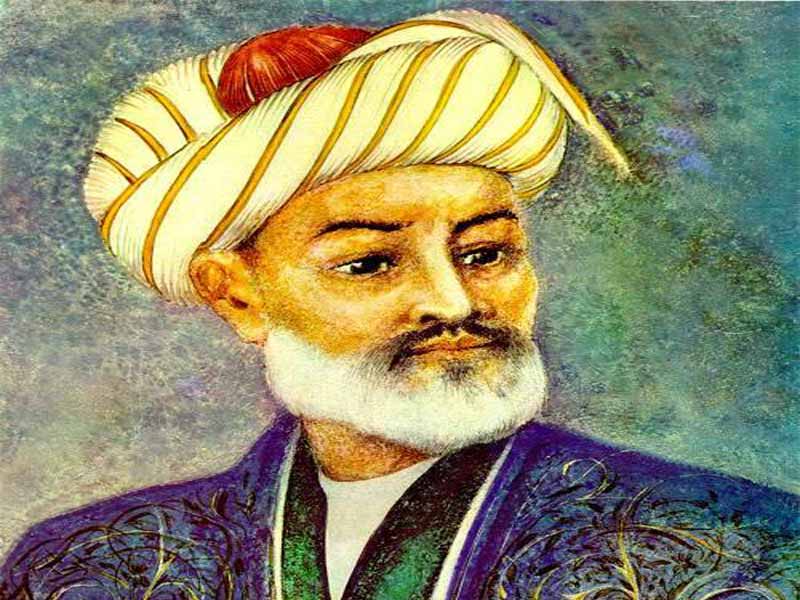Alisher Navoi was a great poet, statesman and the founder of Uzbek literature. He was born in Herat, on February 9, 1441.
Alisher Navoi got a very good education for those days. He knew all poetic forms. Navoi wrote mostly in Turkish and used Persian very little.
Navoi was well known as a literary scholar. He supported poets, scientists and artists. He was a great master of fine arts and knew how to handle a painter’s brush himself. He was a very good architect, and designed many schools, hospitals, inns, bridges, roads and channels.
Navoi’s poems in old Uzbek were collected into four parts, which were called “Chor-Devon” (The Four Divans). His poems in Persian were collected and called “Devoni-Foni” (Foni’s Divans). His most important work is the “Khamsa” (Quintuple), five poems written between 1483 and 1485.
The first, “Hayrat ul-Abror” (Astonishment of Nice People) is a philosophical work. The second poem is “Farhod and Shirin”. The third is “Layly and Majnun”. The fourth, “Sabbai Sayyor” (Seven Planets), consists of seven short works around a common theme, the quarrel between King Bahrom and his beloved Dilorom. The fifth is “Saddi Iskandari” (The Wall of Iskandar).
Alisher Navoi spent his last years in Herat. His last book, “Mahbub-al-qulub” (The Love of Sweethearts), which was written in prose, is very popular with the Uzbek people to this day. Alisher Navoi died on January 3, 1501. His works have entered the treasury of world literature and have been translated into many languages.




















